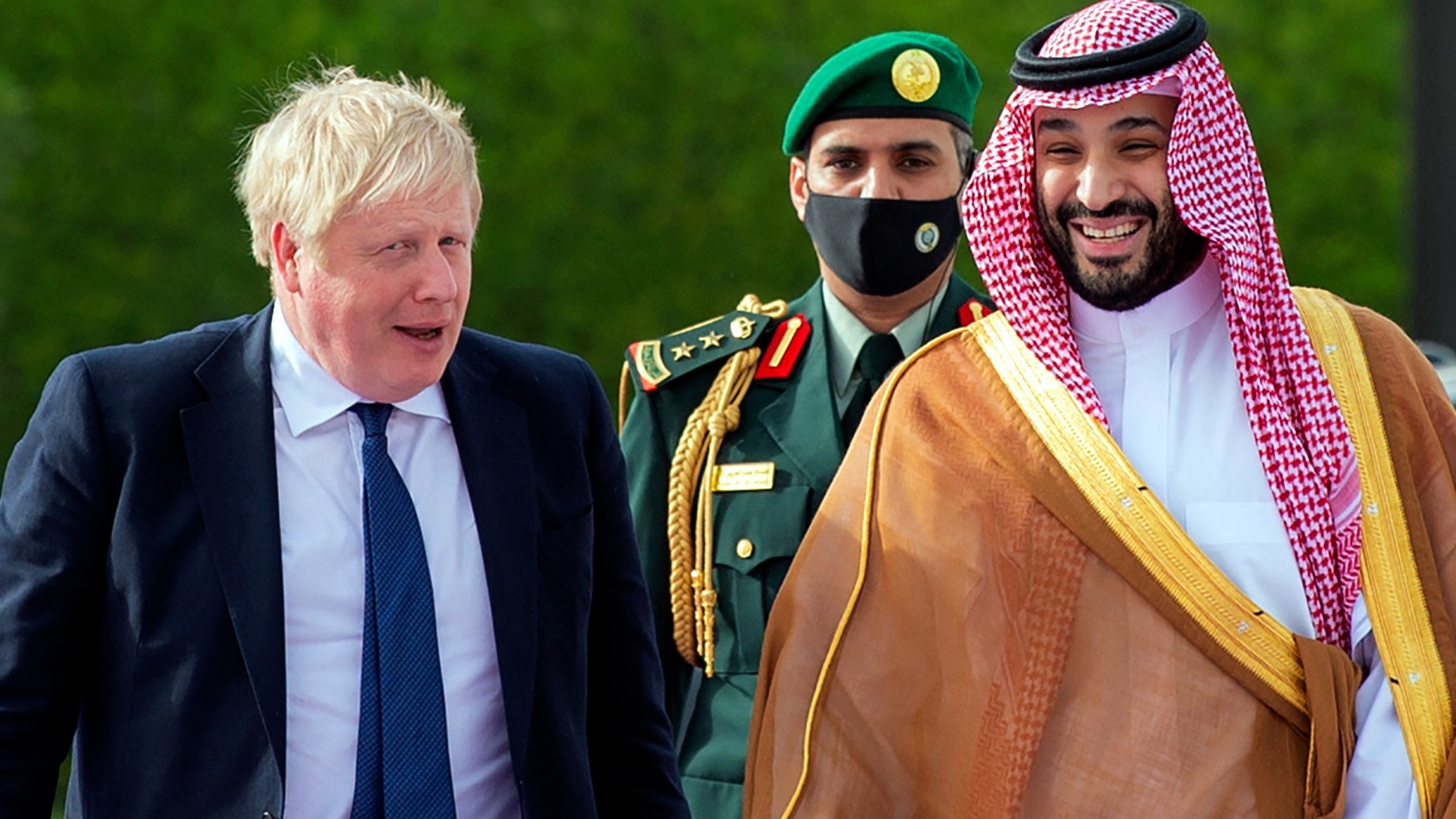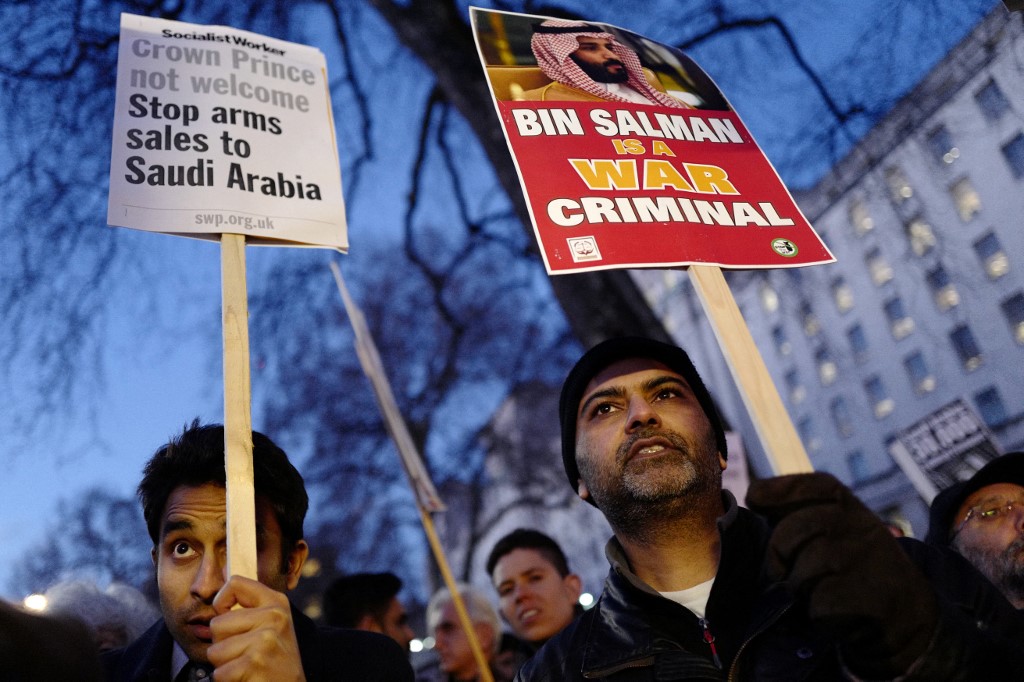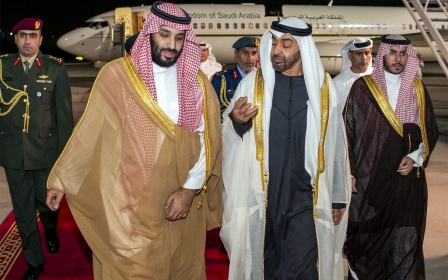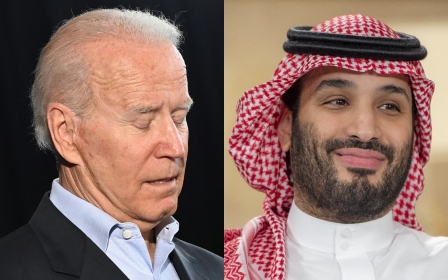Saudi Arabia mass executions: How MBS is thumbing his nose at the West

British Prime Minister Boris Johnson arrived in Riyadh in the middle of a state massacre. On Saturday, Saudi Arabia broke its record for mass executions when official media announced that 81 people had been put to death. Three others were executed the day before the prime minister arrived.
With the whole world occupied by the Ukraine crisis and rising energy prices, Saudi Crown Prince Mohammed bin Salman apparently felt it was the right moment for such large-scale executions. He knows that the future of many western leaders, notably Johnson and US President Joe Biden, along with global economic recovery after two years of Covid-19 inflation, depend on securing cheap oil and gas.
For now, bin Salman is reaping profits from a western crisis that refuses to be resolved: namely, dependence on dictators' cheap oil
This was the crown prince’s historical moment to flex his muscles and demand that the West treat him with respect, after three years of being considered a pariah. He is impatiently waiting for rehabilitation in Washington, which Biden could seal with a handshake.
Did Johnson deliver Biden’s message - that all this is dependent on the crown prince increasing oil production in order to lower prices and save the world from further economic turmoil?
In a recent interview with the Atlantic, asked whether the US misunderstood something about him, bin Salman replied: “Simply, I do not care.” He maintained that no other country has the right to interfere in how he handles his own subjects. Apparently, executions, detentions, unlawful treatment of prisoners, and various other human rights violations are all matters of national sovereignty.
Stay informed with MEE's newsletters
Sign up to get the latest alerts, insights and analysis, starting with Turkey Unpacked
In short, if the West wants cheap oil, they must tolerate his excesses and executions, rather than bringing such matters to the negotiating table. Other powers, namely Russia and China, do exactly that.
Flexing muscles
Beyond his rhetoric, the crown prince is desperate to be recognised in Washington as the future king and to have Biden deal with him directly, rather than addressing his aging father, King Salman (who recently came out of hospital after “successful medical tests”).
Indeed, bin Salman knows very well that his future depends on Washington engaging with him directly. He can flex his muscles at home and carry out as many executions as he wishes, but to secure the throne, he ultimately needs Washington, with Britain serving as a facilitator and provider of military technology. While the US continues to be number one in arming Saudi Arabia, Britain comes second on the list.
The crown prince also wants both the US and Britain, in addition to other western countries, to stop lecturing him on climate change and clean energy. Oil wells that bring in billions of dollars, sovereign wealth, global political status, and the acquiescence of subjects cannot be replaced by solar panels.
Another factor is the ill-fated, Saudi-led war in Yemen, made possible because both the US and Britain have provided arms and shielded the country from international criticism at the United Nations and other forums. While this help has not secured the victory that bin Salman hoped for, it has exposed western hypocrisy when it comes to authoritarian rulers they need. Yemenis, who have neither blonde hair nor blue eyes, are not high on the list of concerns in the West at the moment.
Cherishing defiance
Like other dictators, bin Salman does not care about his reputation. But in so-called democracies, a certain level of consistency and decency should be expected, especially when western countries frequently lecture the world about human rights and moral foreign policy.
Bin Salman surely has a long list of executions to carry out in the future, and he will continue to do so. His suppressed subjects might even cherish the momentary defiance that the crown prince has exhibited in recent weeks by not fully backing the US and Europe in condemning Russia, and in carrying out executions that are considered matters of national sovereignty.
In addition, he didn’t meet Johnson’s visit with too much pomp; the British leader was met at the airport by the deputy governor of Riyadh rather than a higher-ranking official, despite the UK’s role in continuing to prop up Saudi Arabia’s archaic political configuration.
For now, bin Salman is reaping profits from a western crisis that refuses to be resolved: namely, dependence on dictators’ cheap oil.
In the short term, other oil producers may be rehabilitated, such as Iran and Venezuela. In the long term, alternative sources of clean energy may become an affordable reality. Only then can we expect a different scenario, in which bin Salman may think twice before boasting about mass murder in an effort to defy the West and please his most loyal subjects.
The views expressed in this article belong to the author and do not necessarily reflect the editorial policy of Middle East Eye.
This article is available in French on Middle East Eye French edition.
Middle East Eye delivers independent and unrivalled coverage and analysis of the Middle East, North Africa and beyond. To learn more about republishing this content and the associated fees, please fill out this form. More about MEE can be found here.







